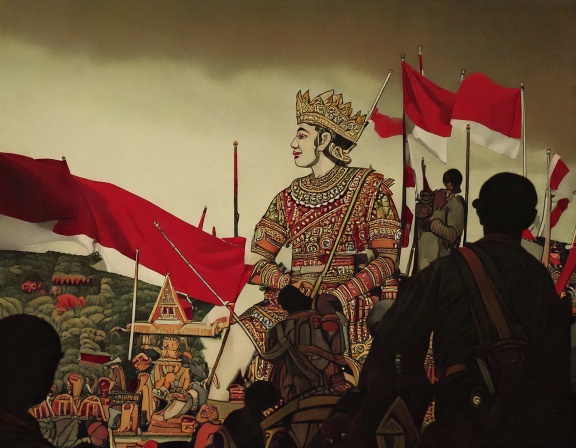Indonesia, the world’s largest Muslim-majority country, has a unique relationship between religion and politics. As a nation founded on the principle of Pancasila, which promotes religious harmony and pluralism, Indonesia maintains a delicate balance between religious influence and state governance. Despite its constitutional commitment to secularism, religious ideologies continue to shape political discourse, policymaking, and social movements. This article explores the intersection of religion and politics in Indonesia, highlighting key dynamics, challenges, and implications for democracy and governance.
Historical Foundations of Religion and Politics
The intertwining of religion and politics in Indonesia dates back to the pre-colonial era when Islamic sultanates governed large parts of the archipelago. During the colonial period, religious groups played a crucial role in resisting Dutch rule, particularly through Islamic and nationalist movements. After independence in 1945, Indonesia’s founding fathers debated the role of Islam in the state, leading to the adoption of Pancasila as the national ideology, which upholds religious pluralism while maintaining a unitary state structure.
Since then, political Islam has remained a significant force in shaping governance. While Indonesia is not an Islamic state, Islamic parties and organizations have influenced laws and policies, advocating for religious values in public life. At the same time, the government has sought to balance religious interests with the principles of democracy and human rights.
The Role of Religion in Indonesian Politics
Religion plays a vital role in shaping Indonesia’s political landscape in several ways:
- Electoral Politics – Religious identity is often mobilized during elections, with candidates seeking support from Islamic organizations and religious leaders (ulama). Political parties with Islamic affiliations, such as the Prosperous Justice Party (PKS) and the United Development Party (PPP), advocate for policies aligned with Islamic teachings, though they operate within Indonesia’s democratic framework.
- Legislation and Policy-Making – Religious considerations influence laws and policies, particularly on issues such as family law, morality regulations, and blasphemy laws. Several regions in Indonesia have implemented sharia-inspired local regulations (Perda Syariah), particularly in Aceh, which enjoys special autonomy to enforce Islamic law.
- Religious Organizations and Political Influence – Large Islamic organizations like Nahdlatul Ulama (NU) and Muhammadiyah play a significant role in shaping social and political discourse. While they do not directly engage in partisan politics, they influence policy debates, education, and public morality discussions.
- Interfaith Relations and Political Tensions – Indonesia’s religious diversity, while a source of strength, has also led to political tensions. Issues such as the 2017 Jakarta gubernatorial election, where religious identity played a central role in mobilizing voters, illustrate how religion can be used as a political tool. Cases of religious intolerance, such as the use of blasphemy laws against minority groups, also highlight the complexities of balancing religious freedom and social stability.
Challenges and Controversies
Despite the positive role of religious institutions in promoting social welfare and moral governance, several challenges arise from the intersection of religion and politics in Indonesia:
- Sectarianism and Political Polarization – The use of religious rhetoric in politics has contributed to social divisions, particularly between conservative and pluralist groups. Hardline Islamist movements have gained traction, advocating for a greater role of Islam in governance.
- Blasphemy Laws and Religious Minorities – Indonesia’s blasphemy laws have been criticized for disproportionately targeting religious minorities and dissenting voices. Cases such as the imprisonment of former Jakarta governor Basuki Tjahaja Purnama (Ahok) illustrate how religious sentiments can influence legal proceedings.
- Balancing Democracy and Religious Conservatism – As Indonesia continues to uphold democratic principles, tensions emerge between modern governance and conservative religious demands. Striking a balance between religious aspirations and human rights remains an ongoing challenge.
Conclusion
Religion and politics in Indonesia are deeply intertwined, shaping governance, legislation, and public discourse. While religious values contribute to Indonesia’s moral and social fabric, their political use presents both opportunities and challenges. As Indonesia navigates its democratic future, maintaining a balance between religious freedom, political inclusivity, and social harmony will be crucial. The ability to uphold Pancasila while respecting religious diversity and democratic principles will define Indonesia’s political trajectory in the years to come.




